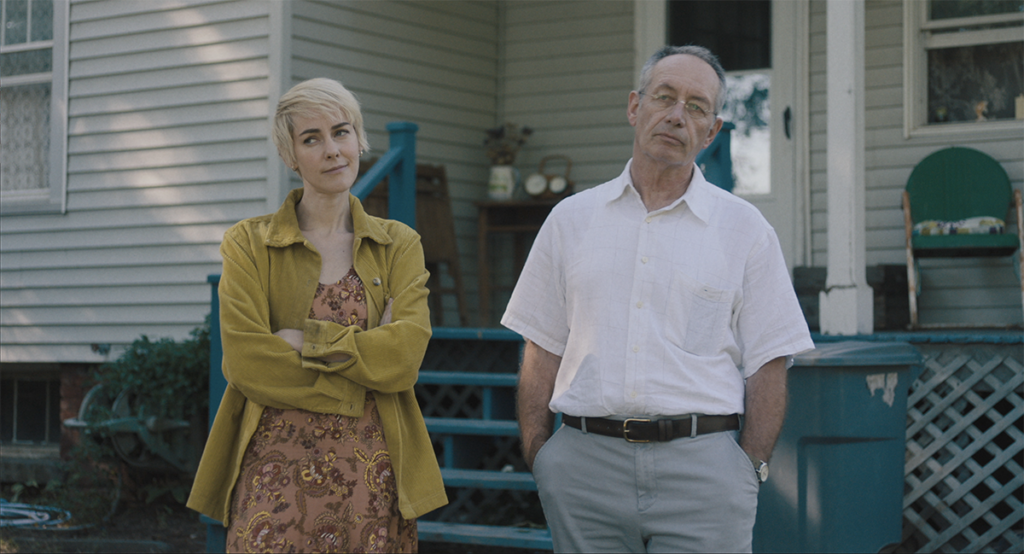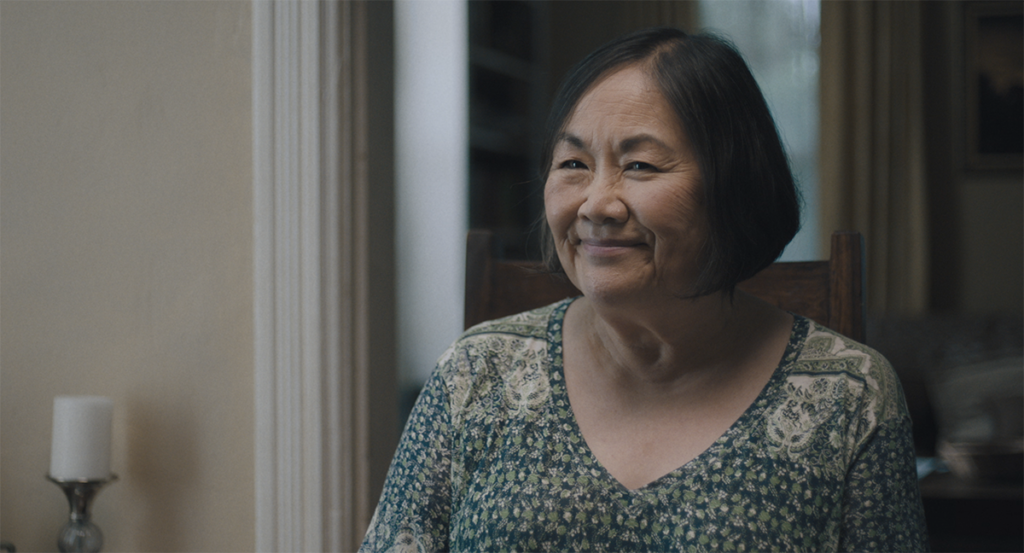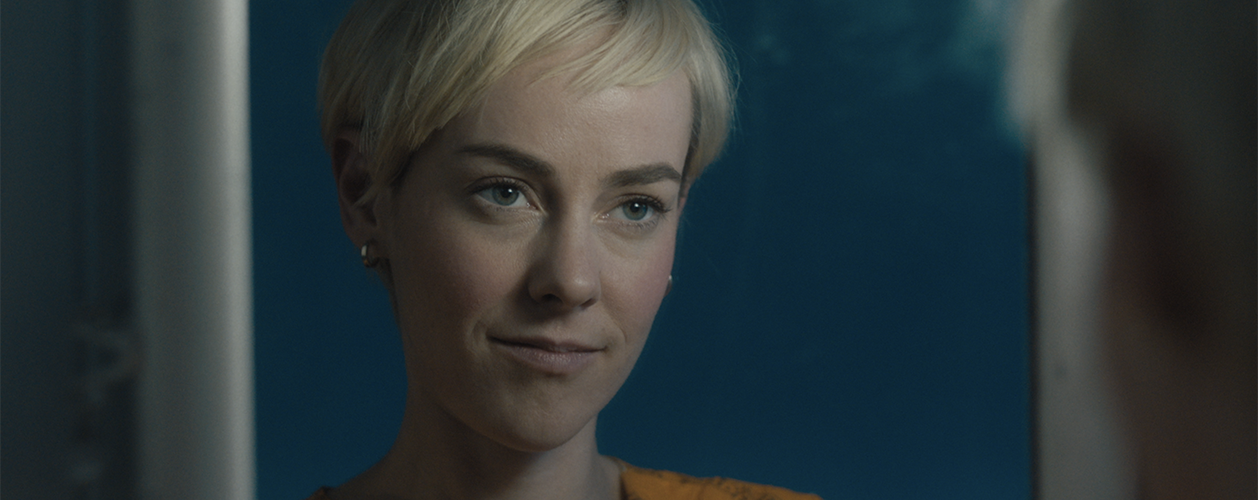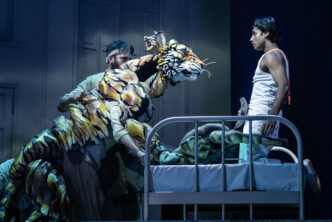Adopting Audrey (known as Porcupine on the festival circuit) opens with our protagonist, Audrey (played by Jena Malone) laughing. It’s a cold open of sorts. We come back to this moment later in the movie though it doesn’t have the weight or revelation the filmmakers might have intended.
A title card declares ‘a surprising amount of what follows is true’. I have no reason to doubt there are moments taken from real events, but the script is inconsistent on character and tone and the dialogue doesn’t feel authentic for the most part.
Audrey works in a call centre collecting debt but can’t pay her own bills. Her electric is cut off moments after her boyfriend or lover (he has one brief scene) dumps her, and she’s behind on her rent.
Audrey spends her moments alone watching viral videos of animals being cared for (this is important and repeated frequently) and based on her reaction to these videos, she derives some (her only?) happiness from them.
We’re meant to see Audrey as aimless, detached from her family, unable to hold down a job (she’s fired from the call centre early in the movie). The writer wants us to think of her as prickly (is this where the festival title came from?) and friendless, but she seems open, interested in other human beings and is especially fond of animals. A later revelation about her childhood is designed to inform us about her nature and perhaps her disassociation from her parents, yet it led me to see Audrey as a nurturer first and a person in need of a parental figure second and I don’t think this was intentional.
As the title suggests, Audrey seeks to be adopted after an animal video leads her to the world of adult adoption.
She meets a few prospective adopters, including one who wants to be ‘daddy’ in a less wholesome way. These scenes might have played better if they were funnier, but the movie never commits to any kind of humour.

Audrey eventually meets the kindly Sunny (Emily Kuroda), who is married to the cantankerous Otto (Robert Hunger-Bühler). Sunny and Otto are both widows, remarried to each other. It’s unclear what has drawn the warm Sunny to rude and controlling Otto or why she would invite a potential adoptee to their house without telling him, but the movie quickly lets us know this isn’t important as Sunny is mostly side-lined after her initial scene. The rest of the movie focuses on Audrey and Otto’s burgeoning paternal bond.
From here the movie has scattershot scenes of Audrey visiting Otto’s home and their attempts to build a tree house for his grandchildren. This culminates in an accident that in another movie would be a catalyst for a third act, but instead, director and writer, M. Cahill, takes us nowhere in particular for another 15 minutes. Thankfully the performances keep us invested.
I’m not familiar with Hunger-Bühler. He’s Swiss born and has worked primarily in German cinema. He does good work here, with what he’s given. We can read much from his treatment of his mother (another, mostly background character) and his adult children (Will Rogers plays his son in a few scenes and makes an impression). A section involving a BBQ and undercooked steaks really sells Otto’s irascible and frankly irrational behaviour, but it comes out of nowhere. I find it difficult to accept that a group of adults, including both children who appear indifferent to him, are willing to tolerate his behaviour, at least without some hint of why he acts the way he does. We’re given little insight into his self-regulation (Otto lives by metrics) but his scenes with Malone are mostly believable and I was willing to accept their surrogate daughter/father connection.

Malone (also executive producing), a former child actor best known for playing the younger version of Jodie Foster in the Robert Zemeckis directed Contact (underrated), has successfully transitioned to adult roles, and isn’t stretched by Audrey. But she isn’t coasting either. She’s a strong centre for a meandering movie, despite conflicting information about her character (her boss tells her she’s better not dealing with people, but Audrey is shown to be friendly and kind, she can’t hold down a job but is shown to be capable and motivated). We aren’t given enough information about Audrey to truly accept these inconsistencies.
Often playing an antagonist role in bigger movies (three of the Hunger Games, Antebellum, The Neon Demon), Malone is quieter and less prickly here. There are no big emotional scenes or revelations for her to play with, yet she draws us in with her eyes and performance choices. I bought her loneliness, her need to move on from people and places where she starts to feel uncomfortable. She’s a reason to watch Adopting Audrey.
Perhaps Adopting Audrey’s biggest flaw is that it’s too subtle.
Adopting Audrey will be available on Digital Download from 13 March 2023.





